Related Research Articles

The rights of lesbian,gay,bisexual,transgender,and queer (LGBTQ) people in the U.S. state of Utah have significantly evolved in the 21st century. Protective laws have become increasingly enacted since 2014,despite the state's reputation as socially conservative and highly religious. Utah's anti-sodomy law was invalidated in 2003 by Lawrence v. Texas,and fully repealed by the state legislature in 2019. Same-sex marriage has been legal since the state's ban was ruled unconstitutional by federal courts in 2014. In addition,statewide anti-discrimination laws now cover sexual orientation and gender identity in employment and housing,and the use of conversion therapy on minors is prohibited. In spite of this,there are still a few differences between the treatment of LGBTQ people and the rest of the population,and the rights of transgender youth are restricted.
In the United States,the rights of transgender people vary considerably by jurisdiction. In recent decades,there has been an expansion of federal,state,and local laws and rulings to protect transgender Americans;however,many rights remain unprotected,and some rights are being eroded. Since 2020,there has been a national movement by conservative/right-wing politicians and organizations to target transgender rights. There has been a steady increase in the number of anti-transgender bills introduced each year,especially in Republican-led states.
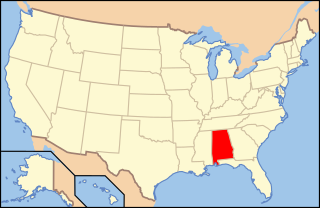
Lesbian,gay,bisexual,transgender,and queer (LGBTQ) individuals in the U.S. state of Alabama have federal protections,but still face legal challenges and discrimination on the state level that is not experienced by non-LGBT residents. LGBTQ rights in Alabama—a Republican Party stronghold located in both the Deep South and greater Bible Belt—are severely limited in comparison to other states. As one of the most socially conservative states in the U.S.,Alabama is one of the only two states along with neighboring Mississippi where opposition to same-sex marriage outnumbers support.

Lesbian,gay,bisexual,transgender,and queer (LGBTQ) people in the U.S. state of New Jersey have the same legal rights as non-LGBTQ people. LGBT individuals in New Jersey enjoy strong protections from discrimination,and have had the same marriage rights as heterosexual people since October 21,2013.
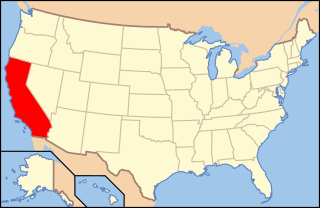
California is seen as one of the most liberal states in the U.S. in regard to lesbian,gay,bisexual,transgender,and queer (LGBTQ) rights,which have received nationwide recognition since the 1970s. Same-sex sexual activity has been legal in the state since 1976. Discrimination protections regarding sexual orientation and gender identity or expression were adopted statewide in 2003. Transgender people are also permitted to change their legal gender on official documents without any medical interventions,and mental health providers are prohibited from engaging in conversion therapy on minors.
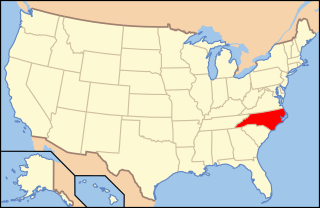
Lesbian,gay,bisexual,transgender,and queer (LGBTQ) people in the U.S. state of North Carolina may face legal challenges not experienced by non-LGBTQ residents,or LGBT residents of other states with more liberal laws.
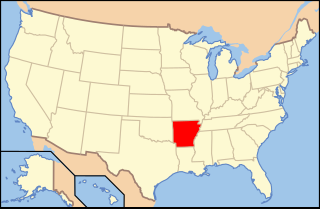
Lesbian,gay,bisexual,transgender,and queer (LGBTQ) people in the U.S. state of Arkansas face legal challenges not experienced by non-LGBTQ residents. Same-sex sexual activity is legal in Arkansas. Same-sex marriage became briefly legal through a court ruling on May 9,2014,subject to court stays and appeals. In June 2015,the U.S. Supreme Court ruled in Obergefell v. Hodges that laws banning same-sex marriage are unconstitutional,legalizing same-sex marriage in the United States nationwide including in Arkansas. Nonetheless,discrimination on the basis of sexual orientation and gender identity was not banned in Arkansas until the Supreme Court banned it nationwide in Bostock v. Clayton County in 2020.
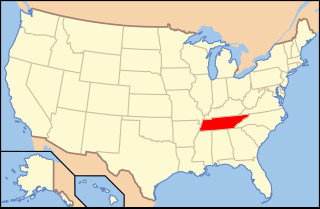
Lesbian,gay,bisexual,transgender,and queer (LGBTQ) people in the U.S. state of Tennessee may experience some legal challenges that non-LGBTQ residents do not. Same-sex sexual activity has been legal in the state since 1996. Marriage licenses have been issued to same-sex couples in Tennessee since the Supreme Court ruling in Obergefell v. Hodges on June 26,2015.
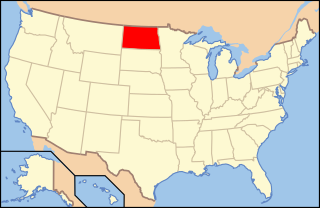
Lesbian,gay,bisexual,transgender,and queer (LGBTQ) people in the U.S. state of North Dakota may face some legal challenges not experienced by non-LGBTQ residents. Same-sex sexual activity is legal in North Dakota,and same-sex couples and families headed by same-sex couples are eligible for all of the protections available to opposite-sex married couples;same-sex marriage has been legal since June 2015 as a result of Obergefell v. Hodges. State statutes do not address discrimination on account of sexual orientation or gender identity;however,the U.S. Supreme Court's ruling in Bostock v. Clayton County established that employment discrimination against LGBTQ people is illegal under federal law.
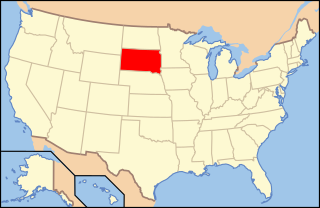
Lesbian,gay,bisexual,transgender,and queer (LGBTQ) people in the U.S. state of South Dakota may face some legal challenges not experienced by non-LGBTQ residents. Same-sex sexual activity is legal in South Dakota,and same-sex marriages have been recognized since June 2015 as a result of Obergefell v. Hodges. State statutes do not address discrimination on account of sexual orientation or gender identity;however,the U.S. Supreme Court's ruling in Bostock v. Clayton County established that employment discrimination against LGBTQ people is illegal under federal law.
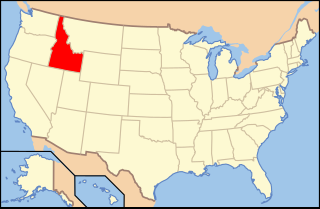
Lesbian,gay,bisexual transgender,and queer (LGBTQ) people in the U.S. state of Idaho face some legal challenges not experienced by non-LGBTQ people. Same-sex sexual activity is legal in Idaho,and same-sex marriage has been legal in the state since October 2014. State statutes do not address discrimination based on sexual orientation and gender identity;however,the U.S. Supreme Court's ruling in Bostock v. Clayton County established that employment discrimination against LGBTQ people is illegal under federal law. A number of cities and counties provide further protections,namely in housing and public accommodations. A 2019 Public Religion Research Institute opinion poll showed that 71% of Idahoans supported anti-discrimination legislation protecting LGBTQ people,and a 2016 survey by the same pollster found majority support for same-sex marriage.

Lesbian,gay,bisexual,transgender,and queer (LGBTQ) people in the U.S. state of Kansas have federal protections,but many face some legal challenges on the state level that are not experienced by non-LGBTQ residents. Same-sex sexual activity is legal in Kansas under the US Supreme Court case Lawrence v. Texas,although the state legislature has not repealed its sodomy laws that only apply to same-sex sexual acts. The state has prohibited discrimination on the basis of sexual orientation and gender identity in employment,housing and public accommodations since 2020. Proposed bills restricting preferred gender identity on legal documents,bans on transgender people in women's sports,bathroom use restrictions,among other bills were vetoed numerous times by Democratic Governor Laura Kelly since 2021. However,many of Kelly's vetoes were overridden by the Republican supermajority in the Kansas legislature and became law.
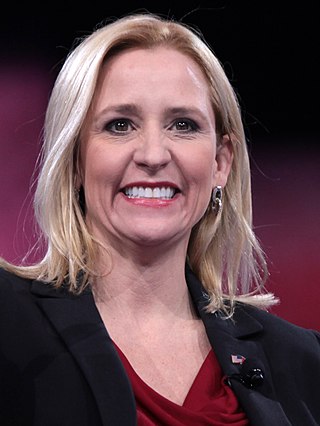
Leslie Carol Rutledge is an American attorney and politician who has served as the 21st lieutenant governor of Arkansas since 2023. A member of the Republican Party,she was previously the 56th attorney general of Arkansas from 2015 to 2023.
A bathroom bill is the common name for legislation or a statute that denies access to public toilets by gender or transgender identity. Bathroom bills affect access to sex-segregated public facilities for an individual based on a determination of their sex as defined in some specific way,such as their sex as assigned at birth,their sex as listed on their birth certificate,or the sex that corresponds to their gender identity. A bathroom bill can either be inclusive or exclusive of transgender individuals,depending on the aforementioned definition of their sex.

Anti-LGBTQ curriculum laws are laws approved by various U.S. states that limit the discussion of sexuality and gender identity in public schools. In theory,these laws mainly apply to sex ed courses,but they can also be applied to other parts of the school curriculum as well as to extracurricular activities such as sports and organizations such as gay–straight alliances. In July 2022,a wave of anti-LGBT curriculum resurgence saw ten such laws beginning to take effect in six different states. Some states enacting these new laws appear to have mirrored similar laws from other states.
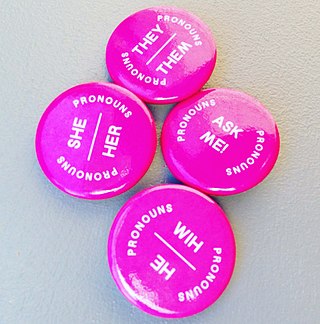
Preferred gender pronouns are the set of pronouns that an individual wants others to use to reflect that person's own gender identity. In English,when declaring one's chosen pronouns,a person will often state the subject and object pronouns,although sometimes,the possessive pronouns are also stated. The pronouns chosen may include neopronouns such as "ze" and "zir".

The COVID-19 pandemic was confirmed to have reached the U.S. state of Arkansas in March 2020. The first case in Arkansas was reported on March 11,2020,in Pine Bluff,Jefferson County. As of March 2022,there were 819,984 cumulative cases of COVID-19 with a total of 10,524 deaths.
Amy Nichole Grady is an American teacher and politician who has served as the junior West Virginia State Senator from the 4th district since 2020. Grady is a Republican. Grady has served as the chair of the West Virginia Senate Education Committee since 2022.
Bruce Alan Cozart is an American politician and businessman who has been a Republican member of the Arkansas House of Representatives since 2011.

Transphobia in the United States has changed over time. Understanding and acceptance of transgender people have both decreased and increased during the last few decades depending on the details of the issues which have been facing the public. Various governmental bodies in the United States have enacted anti-transgender legislation. Social issues in the United States also reveal a level of transphobia. Because of transphobia,transgender people in the U.S. face increased levels of violence and intimidation. Cisgender people can also be affected by transphobia.
References
- ↑ "Mary Bentley's Biography". Project Vote Smart . Retrieved April 12, 2015.
- ↑ "Mary Bentley". arkansashouse.org. Retrieved April 12, 2015.
- ↑ "HB1749 Bill Information - Arkansas State Legislature". Arkansas State Legislature. Retrieved 2021-04-11.
- ↑ Rose, Shelby (2021-04-08). "Bill allowing Arkansas teachers to misgender students passes the House". KATV . Retrieved 2021-04-11.
- ↑ Lockwood, Frank; Herzog, Rachel (2021-04-09). "Transgender name ban advances". Arkansas Online . Retrieved 2021-04-11.
- ↑ Hayes, Mills (2021-04-07). "Creationism bill passed in Arkansas House, headed to Senate". KATV. Retrieved 2021-04-18.